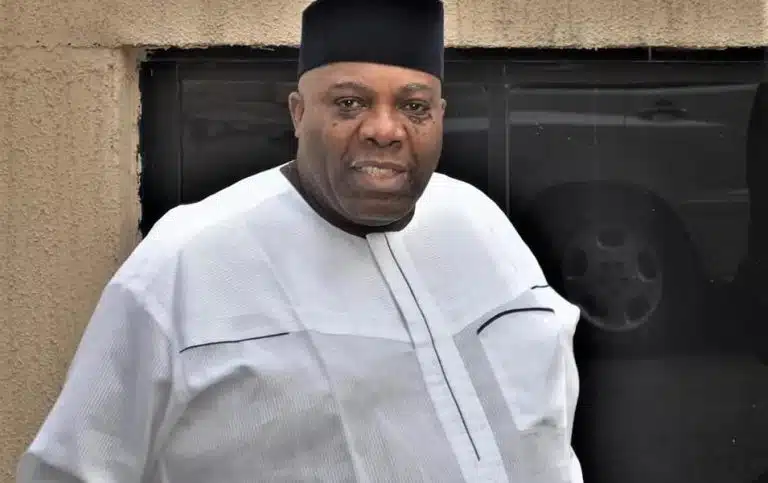A former Director-General of the Peter Obi Presidential Campaign Council, Doyin Okupe, has denied claims that he was convicted of corruption.
It will be recalled that Okupe was convicted of violating the Money Laundering Act by receiving cash in excess of the law’s provision from the office of the former National Security Adviser, Sambo Dasuki, while he was in office.
The presiding judge, Ijeoma Ojukwu, however, gave him the option of paying a fine of N500,000 for each of the 26 counts he was found guilty, making a total of N13 million instead of going to jail.
The former presidential aide paid the fine imposed on him by the court and escaped jail time.
Speaking in an interview on Arise News on Tuesday, Okupe said the Economic and Financial Crimes Commission (EFCC) discharged him of all 34 charges.
The chieftain of the Labour Party (LP) said he was only convicted of money laundering but was never convicted of corruption.
Okupe, who was an aide to the former president, Goodluck Jonathan, added that his trial and conviction in 2022 were politically motivated.
He claimed that the All Progressives Congress (APC) government used the anti-graft agency to punish him.
He said, “I was never convicted of corruption. I was discharged from all 34 charges of corruption. I was discharged completely.
“What I was convicted of was money laundering which is not corruption. I was being funded under the directive of Mr President by the NSA.
“My trial was politically motivated. My arrest and prosecution by the EFCC was malicious. It was not even a prosecution but persecution.
“For you to convict someone of money laundering, there must be concealment but I have never concealed anything.
“Secondly, there must be a direct benefit to the person who collected the money but there was no direct benefit to me and I was able to prove that in the court.
“Some people in the presidency wanted to punish me.”
Speaking on the crisis rocking the Peoples Democratic Party (PDP), Okupe said the party ignored the sentiments of giving the presidency to the South, which led to internal wranglings.
He said: “It was the time for a Southern president. It was unacceptable for the PDP to nominate a northerner.“


